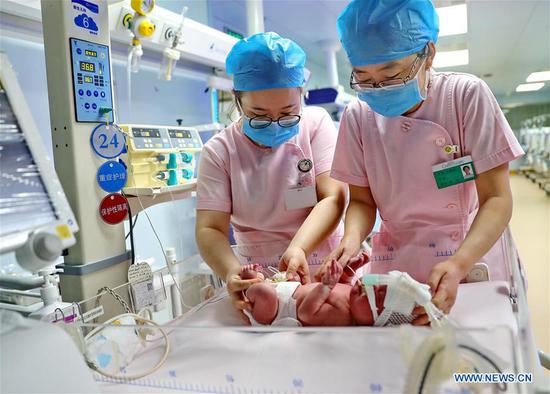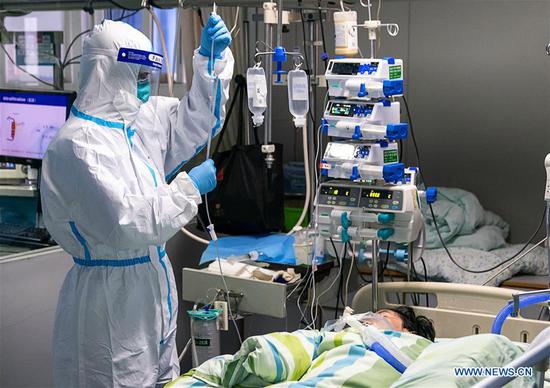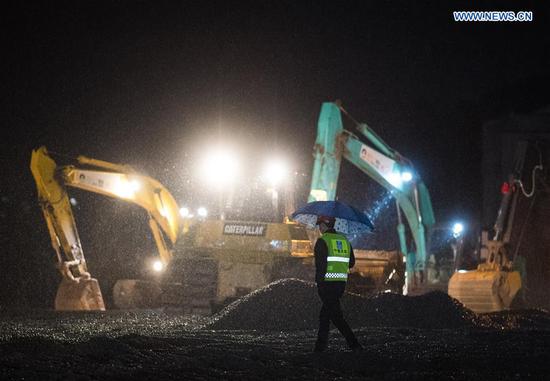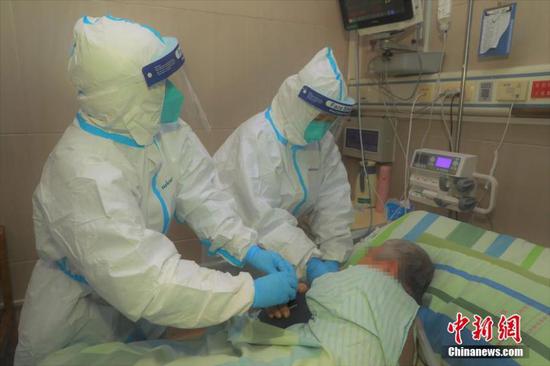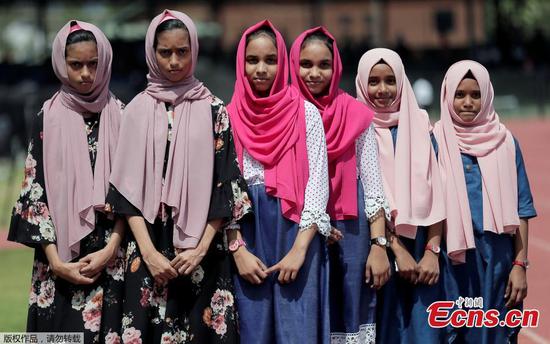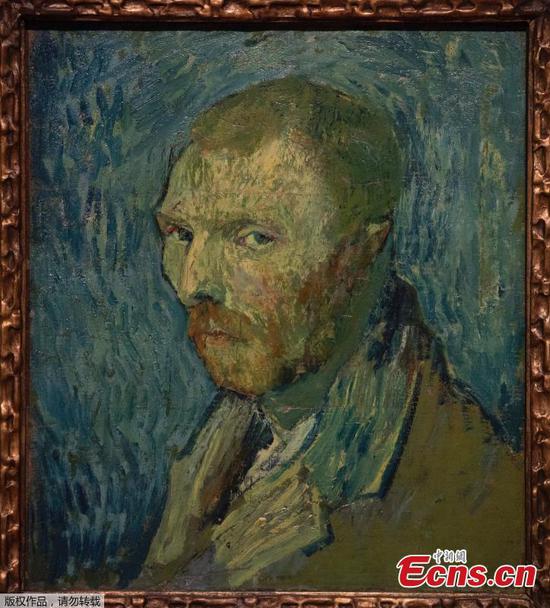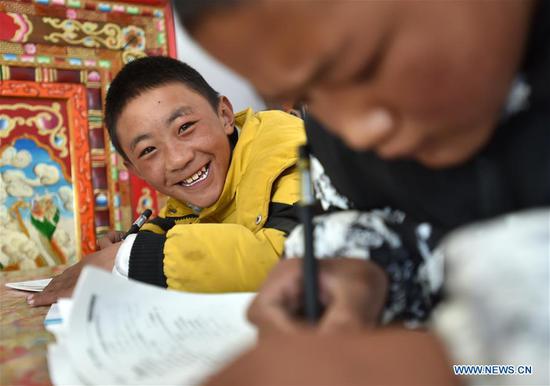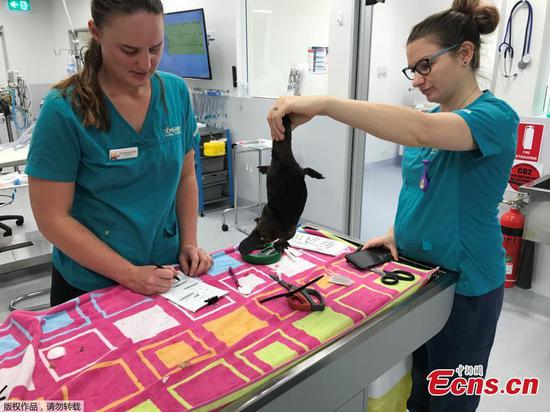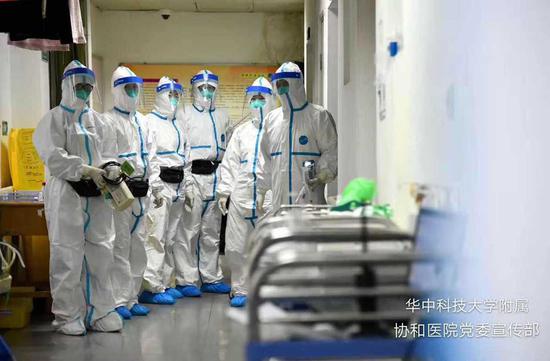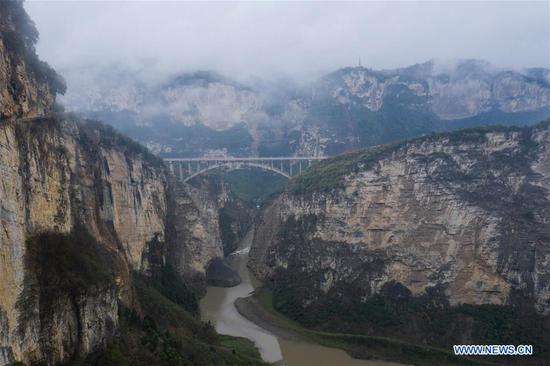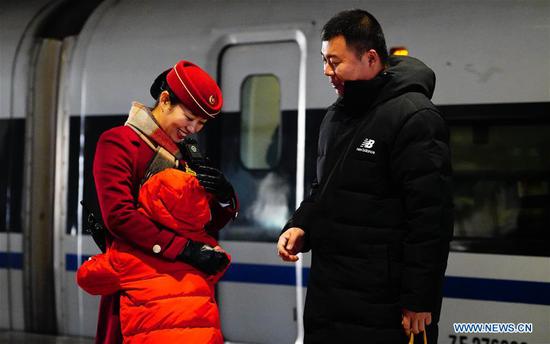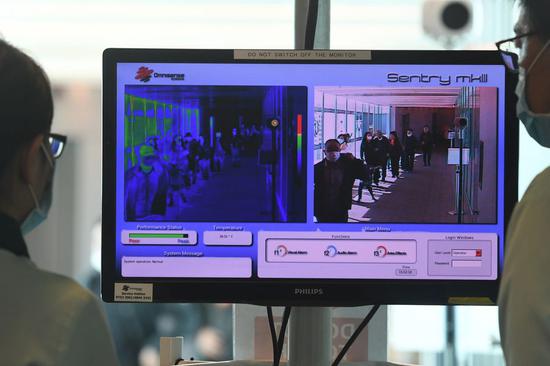
Passengers undergo thermal scanning upon arrival at Singapore Changi Airport in Singapore, Jan 22, 2020. (Photo by Then Chih Wey/Xinhua)
Multiple countries have rolled out measures to curb the spread of the novel coronavirus that caused an outbreak in Wuhan, a city in central China.
Screening measures have been put in place at border entries such as airports and harbors in a number of countries, including Laos, Bangladesh, Singapore, Malaysia, Australia, Turkey, Bahrain, Uganda, and Zambia, to check for signs of infection from the virus, which has been named 2019-nCoV.
Thai Prime Minister Prayut Chan-o-cha has ordered all relevant organizations in his country to step up measures to cope with the novel coronavirus and respond to changing situations.
"People have been warned not to visit areas of the outbreak and nationwide hospitals were ordered to be ready to treat patients around the clock," Prayut said Friday.
Mongolia's National State Emergency Commission has decided to temporarily close all public and private schools and kindergartens across the country from next Monday to March 2, to prevent the spread of 2019-nCoV as well as other respiratory diseases.
Vietnam's ministry of health has issued an urgent dispatch, requiring hospitals and clinics across the country to set up rapid response teams.
Patients will be organized by classification at registration desks, and patients with symptoms of acute respiratory infection must be isolated and examined in separate sections of the hospital, while those who were in China within the last 14 days must be checked in terms of epidemiological factors, according to the dispatch.
In Chicago, where the second confirmed case in the United States was reported, local officials said they have been closely following potential cases and sharing information with federal health agencies.
The U.S. Centers for Disease Control and Prevention said the immediate health risk from 2019-nCoV to the U.S. public is "considered low at this time."
In Britain, the government held an emergency response meeting over the coronavirus on Friday. Chris Whitty, chief medical officer for England, was cited by local news as saying that everyone who has been tested for the coronavirus has been given the all-clear, while the risk to the British public "remains low."
In Egypt, an integrated plan has been drawn up to handle any emergency situation, said Alaeddin Eid, the country's assistant health minister for preventive medicine, adding that the plan covers all stages including early detection, quarantine and treatment measures, and raising public awareness.
By the end of Friday, 1,287 confirmed cases had been reported in China, with 41 having died of pneumonia caused by 2019-nCoV, and 38 recovered and discharged from hospital. In addition, 10 confirmed cases had been reported in China's Hong Kong, Macao and Taiwan regions.
Outside China, confirmed cases have been reported in Thailand, Japan, South Korea, the United States, Vietnam, Singapore, Nepal, France and Australia.
The World Health Organization (WHO) said Thursday that it was "too early" to declare the novel coronavirus outbreak in China a public health emergency of international concern, but it warned that the number of cases may rise as much about the virus remains unknown.
WHO Director-General Tedros Adhanom Ghebreyesus thanked the Chinese government for its cooperation and transparency, saying it has been successful in isolating and sequencing the virus quickly, and that it has shared the virus's genetic sequence with the WHO and the international community.
On Wednesday, in separate phone conversations with French President Emmanuel Macron and German Chancellor Angela Merkel, Chinese President Xi Jinping said China is willing to work with the international community to effectively tackle the spread of the disease and maintain global health security.









